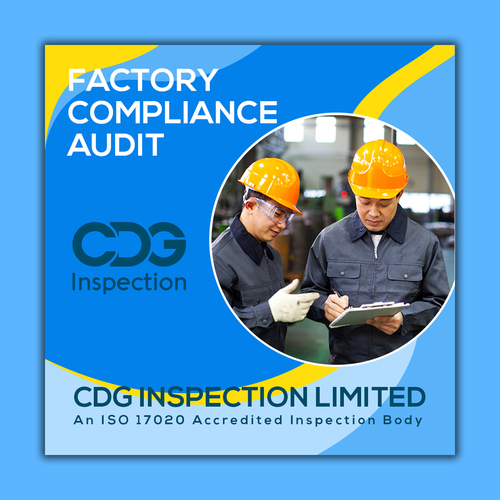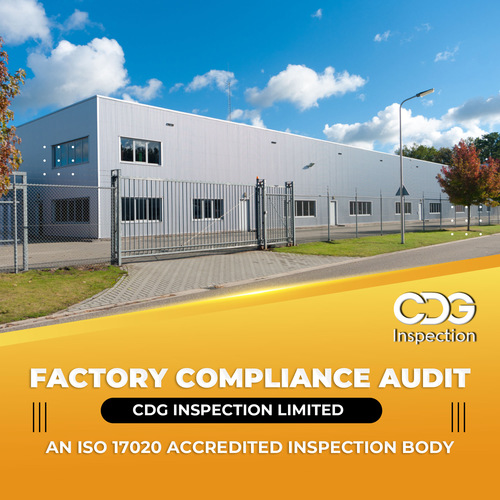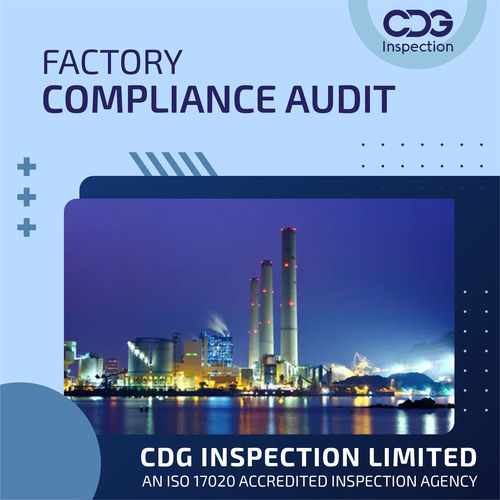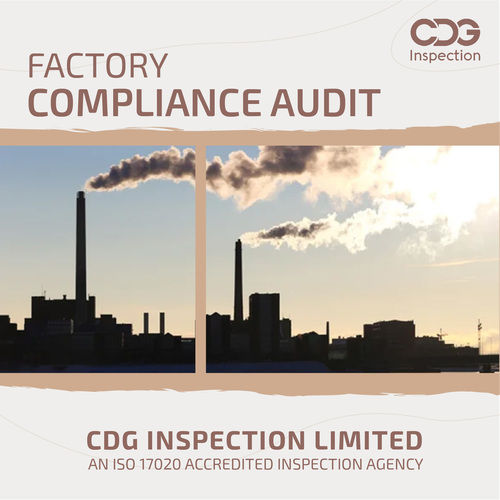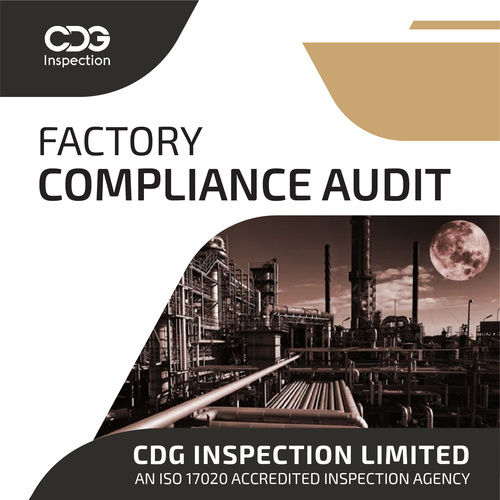Factory Compliance Audit
Product Details:
Product Description
Factory audits are one of the best ways to get a full picture of your suppliers sourcing and operational policies and ensure that they align with your companies brand image. The type of audit that is best for your company depends on the type of product or service you provide. The 6 Most Common Types of Factory Audits:1. Manufacturing Audit, During a manufacturing factory audit, the auditors determine if a supplier is capable of: producing a product that meets your companies specifications, addressing costly disruptions, and preventing (further) costly disruptions once production is launched. Benefits of a Manufacturing Audit Verifies that your suppliers manufacturing facilities are suitable to produce your product, Ensures alignment of your companies sourcing policies and your suppliers policies, Identifies and mitigates potential quality, operational, and ethical risks, Evaluates the competence of factory management.2. Ethical Audits, Ethical audits help to ensure social accountability is being reviewed. With increasing pressure for all companies to be socially accountable, to provide healthy, safe, and ethical work environments along with sound labour practices and pay, an ethical audit ensures the appropriate work conditions are being followed. The criteria used for ethical factory audits can be both client, specific and based on several different international standards. Benefits of Ethical Audits: Ensures your supply chain has decent working conditions and human rights practices, Helps determine compliance with statutory requirements, Prevents unauthorized subcontracting, Helps gain an accurate understanding of ethical compliance, Builds cooperative relations with suppliers, Improves your companies brand image and consumer loyalty.3. Structural Audits, Structural audits, are designed to analyse the integrity and safety of your suppliers buildings and premises. This includes auditing the structural integrity, fire safety measures, relevant codes and conditions. Benefits of Structural Audits, Ensures safe working conditions, which helps prevent minor and catastrophic injury, ensures that employee health is not in danger, Protects your brand image and reputation, Reviews compliance with statutory requirements, Helps gain an accurate understanding of the state of safety in your supply chain, Prevents supply chain interruptions.4. Environmental Audits, By monitoring and improving the environmental impact of your supply chain, environmental factory audits help evaluate compliance with local laws and regulations as it relates to environmental protection. Benefits of Environmental Audits, Assurances that international principles and your companies compliance requirements are both being followed, Provides the ability to combine audit results with lab testing to capture a complete picture of your suppliers environmental performance. Leads to the improvement of environmental performance. Verifies compliances with local and international regulations for environmental protection.5. Customs, Trade Partnership Against Terrorism Audit, The C,TPAT audit focuses on improving the security, with respect to terrorism, of private companies in supply chains. The program is led by the U.S. Customs and Border Protection. Audit programs are designed to assess and enhance security measures, both from a physical and virtual perspective. Benefits of C,TPAT Strengthens your supply chain security. Verifies compliance and ensures the integrity of security practices of business partners in your supply chain. Improves U.S. bordersecurity.6. Food Supplier Audits, Factory audits for food suppliers, food supplier audits, are designed to assess food hygiene and good manufacturing practices. They focus on food quality and safety. Plus, they ensure that facilities meet the appropriate standards. Benefits of Food Supplier Audits, Demonstrates your commitment to food safety and quality, Increases consumer confidence, Improves operational efficiency, Ensures adherence to government regulations and requirements of your destination market.

Price:
- 50
- 100
- 200
- 250
- 500
- 1000+

